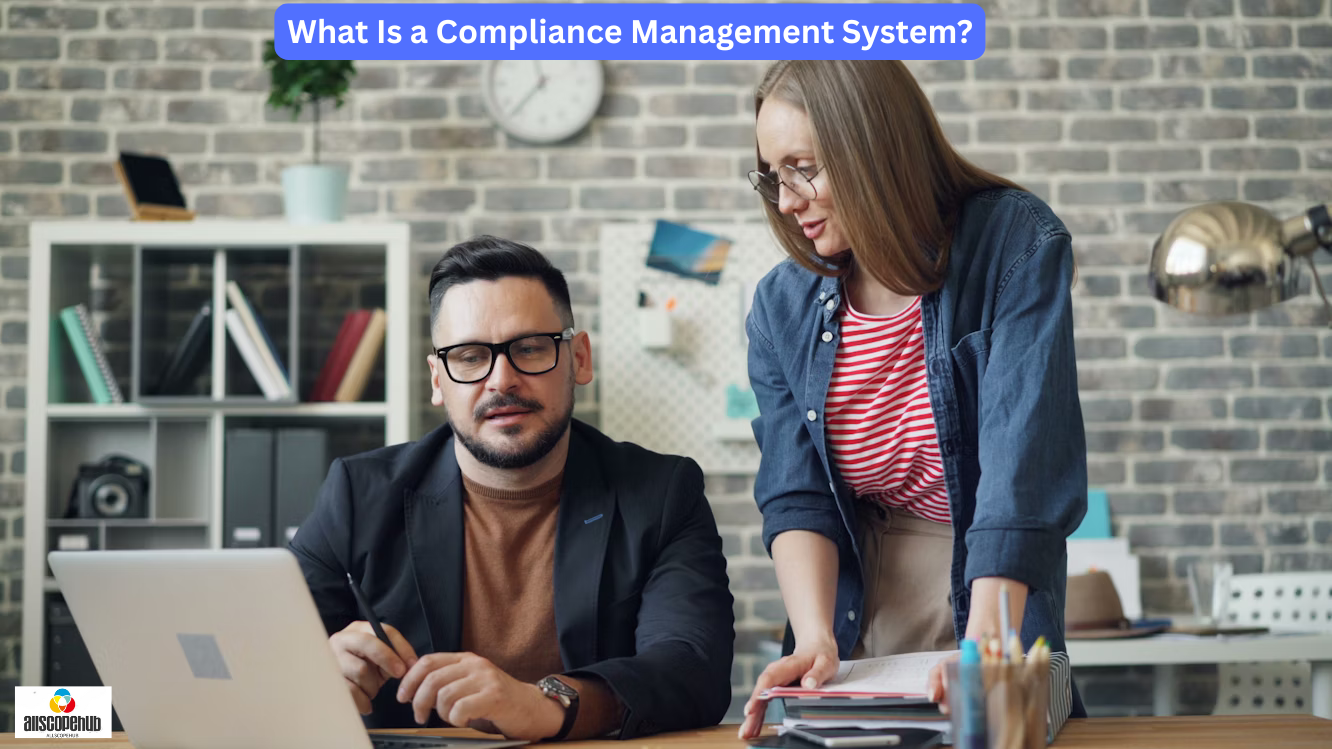You Don’t Need a Legal Degree to Stay Compliant—But You Do Need a System
Let’s be honest for a second.
You didn’t start your business because you love reading regulation manuals.
And yet—somehow—you’ve found yourself buried in spreadsheets, tracking employee training, document updates, audits, deadlines, and about a dozen policies with names that make your eyes glaze over.
We’ve been there. Most businesses, especially small and mid-sized ones, treat compliance like a checklist item until something breaks. But guess what? It doesn’t have to be this way.
The truth is, the right compliance management system doesn’t just check the boxes—it helps your business breathe easier. It protects your people, keeps regulators off your back, and gives you space to focus on what you’re good at.
Let’s break down what a CMS is, why you’ve probably underestimated it, and what makes it so valuable in 2025 and beyond.
Let’s Kill the Buzzwords: What a Compliance Management System Is
Forget the jargon. This isn’t some “revolutionary digital framework for scalable policy oversight.”
It’s simpler than that.
A compliance management system (CMS) is just a structured way to make sure your business follows the rules and can prove it.
According to the Federal Deposit Insurance Corporation (FDIC), a CMS helps organizations manage and monitor compliance responsibilities through clear oversight, a strong compliance program, and an effective audit and corrective action process.
At its core, a CMS includes:
- Your policies, processes, training, and internal controls
- A clear place where accountability lives
- A way to track, manage, and prevent legal and regulatory issues
So, whether you’re handling HIPAA, OSHA, GDPR, or just making sure Bob from sales remembers his cybersecurity training, this is the system that holds it all together.
Spreadsheets Are Not a Strategy (Here’s Why They Fail)
Don’t get us wrong—Excel has its place. But using it to manage compliance is like using a notepad to track your company’s finances.
Here’s what usually happens when businesses rely on manual compliance tracking:
- Files get lost, versions get mixed up
- No audit trail, no real-time updates
- Compliance tasks get buried in someone’s inbox
And worst of all?
When regulators come knocking, you’re left scrambling for documentation.
A compliance management system fixes all of that. It gives you one source of truth. It automates the dull stuff. And it helps you sleep better at night.
Real Talk: Compliance Is a Pain Until It Isn’t
Here’s the wild part about compliance—it only matters when it goes wrong.
One missed training. One outdated policy. One accidental click in a phishing email. That’s all it takes for things to go sideways. And once they do, the damage isn’t just financial—it’s reputational.
But when you’ve got a solid system in place?
- You catch problems before they explode
- You prove your due diligence
- You show clients and partners that you care
You’re not just “doing compliance”—you’re building trust.
2025 Is Not 2015—Compliance Rules Are Smarter and Stricter
Let’s face it, the rules are changing. Fast. Whether it’s AI governance, global data privacy, or ESG regulations, staying compliant in 2025 isn’t just about following the law. It’s about keeping up with the law.
The Office of the Comptroller of the Currency (OCC) emphasizes that modern CMS structures must allow for flexible, scalable compliance operations that adapt quickly to evolving risks and regulatory expectations.
That means you need a system that grows with you, not something that breaks the minute a new rule comes in.
Your compliance management system should help you:
- Adapt to new regulations without panic
- Keep everything current (policies, training, workflows)
- Show regulators and auditors that you’re staying proactive
Compliance is no longer a side hustle. It’s central to how companies are judged by investors, by customers, and by regulators.
So, What Makes a Compliance Management System “Good”?
Here’s what a modern CMS should include—no fluff, no filler:
- Customizable policy templates that fit your industry
- Automated alerts for training, audits, and document reviews
- Employee dashboards so everyone knows what’s due
- Real-time reporting so nothing slips through the cracks
- Secure document storage that’s always audit-ready
Bonus if it’s easy to use and doesn’t require a three-day training to log in.
If your CMS isn’t doing all this, it’s time to upgrade—or start fresh.
Most People Make Compliance Harder Than It Needs to Be
Want to know the biggest mistake businesses make with compliance?
They treat it like a one-time project.
But compliance isn’t something you “set and forget.” It’s an ongoing rhythm. Like payroll. Or customer service. You can’t just handle it once a year and hope everything’s fine.
Here’s how a CMS makes life easier:
- Keeps everyone on the same page
- Standardizes how things get done
- Gives you a bird’s-eye view of your risks
It takes something messy and makes it manageable.
You Don’t Need a Big Team to Run a CMS
Systems like this are only for the big guys. Not true.
Small teams benefit the most because they can’t chase every task manually. A CMS acts like an extra team member—quietly handling the busywork in the background.
It works even if:
- You’re a solo compliance officer
- You wear five hats in your role
- You’ve got zero IT support
It’s not about size. It’s about clarity and control.
Compliance Isn’t Just a Legal Requirement—It’s a Brand Statement
More and more, customers want to work with companies that do things right.
That includes how you manage data, how you treat employees, and how you handle mistakes. Your approach to compliance speaks volumes about your values.
Using a compliance management system shows that you’re serious about running an honest, transparent business. That you don’t just talk about integrity—you live it.
In today’s world, that’s a competitive edge.
The Human Side of Compliance—Because Mistakes Will Happen
Here’s something we don’t talk about enough: people make mistakes.
Someone forgot to take a training. Someone misplaces a file. It happens.
A great CMS doesn’t just prevent those errors—it catches them early, gently, before they become crises.
It gives you:
- Space to learn from slip-ups
- A plan for fixing issues fast
- Tools to prevent it from happening again
It’s not about perfection. It’s about protection.
Okay, But What’s the Payoff? What Do You Get From a CMS?
Let’s talk return on investment. Because yes, compliance software costs money. But the savings? They’re real.
Here’s what you gain:
- Less time on admin tasks (freeing up your team)
- Fewer fines and penalties (which can be massive)
- Faster onboarding for new hires (with built-in training)
- Cleaner audits (with documents in one place)
- Stronger culture (people feel informed, not confused)
Compliance stops being the scary monster in the corner. It becomes just part of how you work, like email or payroll.
If You’ve Read This Far, You’re Already Ahead
You care enough to understand the risks. That puts you ahead of a lot of businesses that are still winging it.
So let’s not overcomplicate it.
A compliance management system isn’t some mysterious, corporate thing. It’s just a more intelligent way to stay safe, stay organized, and stay in business.
You don’t have to do everything today. Just start. Build the habits. Choose the tools. Get your team involved.
And when the next regulation lands (because it will), you’ll be ready, not reactive.
Need Help Figuring Out What’s Next? Let’s Talk
We’re not here to sell you something you don’t need. We’re here to help you make smart decisions that protect your business. Whether you’re starting from scratch or improving what you’ve already got, we’re here to walk that path with you.
Let’s build compliance into your culture, not just your checklist. It starts with one decision.
Let’s make it today.



